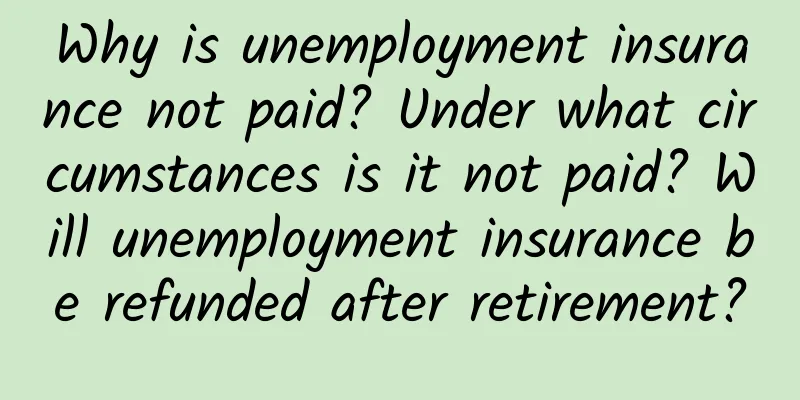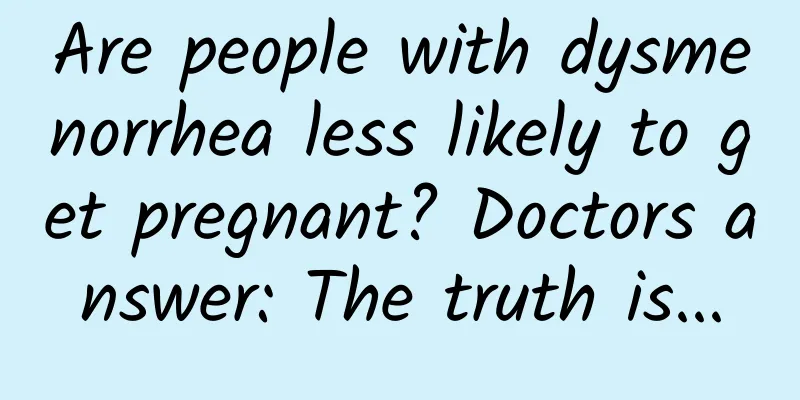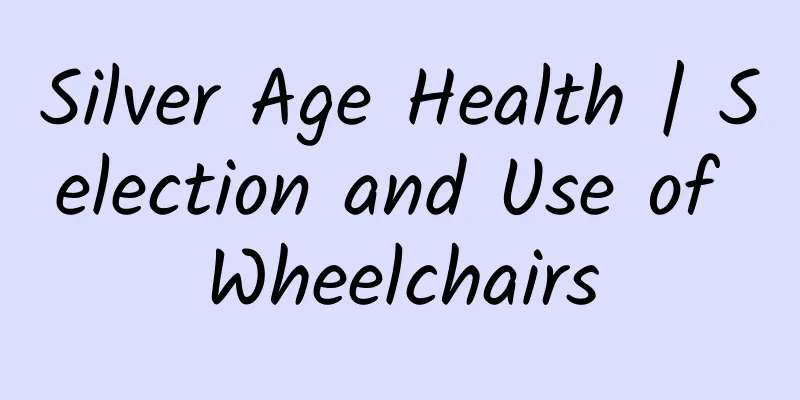Why is unemployment insurance not paid? Under what circumstances is it not paid? Will unemployment insurance be refunded after retirement?

|
Unemployment insurance is one of the social insurances provided by the company for employees. It mainly provides certain material assistance to those workers whose livelihood is temporarily interrupted due to unemployment. Unemployment insurance refers to the basic living expenses paid by the unemployment insurance agency to eligible unemployed persons in accordance with the law. It is a temporary compensation for the unemployed persons who lose their salary income during the period of unemployment. So, will unemployment insurance be refunded after retirement? Contents of this article 1. Why is unemployment insurance not paid? Under what circumstances is it not paid? 2. Will unemployment insurance be refunded after retirement? 3. What is the maximum period for receiving unemployment insurance benefits? 1Why is unemployment insurance not being paid? Under what circumstances is it not being paid?1. According to Article 15 of the Unemployment Insurance Regulations, if an unemployed person encounters any of the following circumstances while receiving unemployment insurance benefits, he or she shall stop receiving unemployment insurance benefits and shall also stop enjoying other unemployment insurance benefits. 2. Re-employment. 3. Those who should be conscripted for military service. 4. Those who have emigrated abroad. 5. Those who enjoy basic pension insurance benefits. 6. Those who have been sentenced to prison or reeducation through labor. 7. Refusing to accept a job offer from a department or institution designated by the local people's government without a legitimate reason. 8. Other circumstances stipulated by laws and administrative regulations. 2Is unemployment insurance refundable after retirement?Because unemployment insurance mainly provides protection for unemployed people, and retirement does not count as unemployment, unemployment insurance will not be returned after retirement. Unless you are unemployed, you cannot get unemployment insurance benefits. However, it should be noted that not all unemployed people can receive unemployment insurance benefits. In order to receive unemployment insurance, first of all, your previous employer must have helped you to apply for social insurance, and secondly, you must have paid unemployment insurance for 1 year in a row. In addition, you must have been employed and not interrupted by your own will, and you must have registered for unemployment in accordance with legal procedures, only then can you receive unemployment insurance. The so-called interruption of employment not due to one's own will refers to: the employee's labor contract is terminated by the employer or the employee is fired, expelled, or dismissed by the employer, as well as the employer's violation of the law or the labor contract, causing the employee to resign. 3What is the maximum period for receiving unemployment insurance benefits?The maximum period for receiving unemployment insurance benefits is twenty-four months, or two years. Some regulations on the collection of unemployment benefits are as follows: if the cumulative payment period is more than one year but less than two years, you can receive three months of unemployment benefits; if it is more than two years but less than three years, you can receive six months, and so on. The maximum period shall not exceed twenty-four months, or two years. Unemployment insurance benefits refer to the basic living expenses paid by unemployment insurance agencies to eligible unemployed persons in accordance with the law. They are a temporary compensation for the unemployed persons' loss of wage income during the period of unemployment. The conditions for enjoying unemployment insurance benefits are as follows: 1. Participate in unemployment insurance in accordance with regulations, and the employer and the individual have fulfilled the payment obligations for more than one year; 2. Those who have stopped their employment within the legal working age due to reasons other than their own will; 3. Those who have registered for unemployment and job-seeking in accordance with regulations. |
>>: A 2-year-old child died after accidentally ingesting a diet pill containing sibutramine!
Recommend
The relationship between hcg and progesterone
Pregnant women need to do some prenatal tests to ...
The cause of red pimples on the face of pregnant women
Many postpartum women have red pimples on their f...
Can pregnant women eat watermelon?
Watermelon is a cool fruit. In the hot summer, it...
What does a female premarital examination check?
Couples must have a premarital physical examinati...
How long does it take for menstruation to come after miscarriage?
In daily life, many friends have abortions for ma...
Is frequent use of condoms harmful to women's health?
Speaking of contraceptive methods, everyone shoul...
Causes of baldness on top of girls' heads
Baldness is very common nowadays. Many people don...
Alternating pain in the left and right lower abdomen
Many female friends suffer from abdominal pain, a...
"Stones" growing in the gallbladder
1. Is bile secreted by the gallbladder? Many peop...
Leucorrhea is like wet paper scraps
In our daily life, many women are very distressed...
Menstrual leave postponed for 6 days
The general menstrual cycle is 28 to 30 days. If ...
Female upper back pain
If a woman experiences pain in the upper back, th...
What are the ways for women to maintain health in spring?
We know that spring is a season for all things to...
With the advent of vaccines, will the new coronavirus be eradicated?
Why do many infectious diseases have correspondin...









